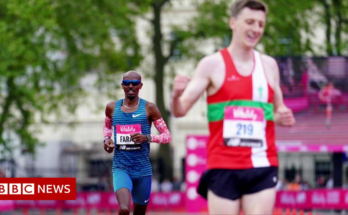His intent on pursuing a singing career through an off-market style of jazzy big band music led him down some winding paths. The nightclub gigs were “the good ones,” he said; more humbling were the cruise ships and shopping mall performances, and worst of all were the singing telegrams, where for $20 he might sing for a lucky birthday girl at the Canadian restaurant chain White Spot.
In 2000, Bublé was hired to perform at the wedding for a daughter of Brian Mulroney, the former prime minister of Canada, and met the producer David Foster there. Eventually, he convinced Foster to sign him to his Warner subsidiary label, with the caveat that Bublé had to personally raise the budget to make a new album. The result was the 2003 LP “Michael Bublé,” which placed multiple singles on the Billboard Adult Contemporary charts and ultimately went platinum.
When he broke through, Bublé was approaching 30 — young for the world, but not the music industry. While some record executives paled at his age, one bonus was that he was ready to meet his moment with proper humility, when it finally came. “I was so late to this party, that I was already who I was,” he said. The years of grinding had also inculcated a relentless work ethic that, in retrospect, came with trade-offs. “I was blinded to anything that wasn’t the ascension of a career — becoming the greatest musician, the greatest songwriter, the greatest entertainer,” he said. “Everything I did was going toward that goal, and I never stopped to smell the roses.”
He missed friends’ birthdays and weddings; he said he rarely explored the cities where he’d perform. Greater success followed, both professionally and personally: In 2011, he married the Argentine actress Luisana Lopilato and released “Christmas,” a record of holiday songs that remains the best-selling of his career. But when his commercial momentum momentarily flagged with “Nobody but Me” in 2013, “It was the first time that I probably had ever felt a sense of panic,” he said, pausing to let the thought sink in. “I felt like my false self had started to get the best of me — I started to doubt myself and who I was and what I wanted to do.”
In 2016, he learned his eldest son, Noah, then 3 years old, had a rare form of liver cancer. “I just remember thinking that for the first time, I could see everything completely clearly,” Bublé said. “That’s when I started to have a much healthier relationship with this thing that I do — this person you become when you go on tour.” (After months of chemotherapy, Noah went into remission.) Bublé started paying closer attention to his fitness so that he could better maintain the stamina required for long performances; he also allowed himself to open up the creative process, after what he called a “micromanaging” approach to his earlier work.



